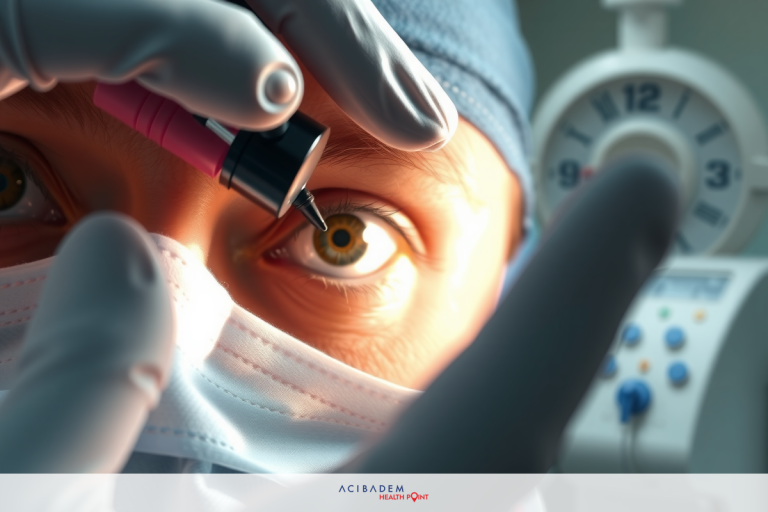How Can Laser Eye Surgery Correct Short Sightedness
How Can Laser Eye Surgery Correct Short Sightedness Laser eye surgery is a medical wonder in the field of vision correction. This revolutionary treatment has opened up new vistas for those suffering from short sightedness, medically termed myopia. If you’re one among many wishing to discard away your prescription glasses, laser treatment offers an effective solution.
Short sightedness can be more than just a minor irritation; it affects every aspect of daily life from reading books to recognizing faces at distances. Laser eye surgery acts as a turning point offering clear and sharp vision by reshaping the eye’s cornea with high precision lasers – presenting itself as truly wonderous technology.
What is Laser Eye Surgery
Laser eye surgery, a major advancement in ophthalmology, aims to correct vision anomalies like short sightedness. This cutting-edge procedure employs sophisticated lasers to reshape the cornea-the transparent front part of the eye. The precision the process offers makes it highly sought after for correcting refractive errors and helping patients gain better vision.
Short sightedness or myopia results when the light entering your eyes focuses in front of, rather than on, your retina due to elongated eyeball shape or overly curved corneal surface. By intricately adjusting these curvature issues via laser energy application, this refractive surgery aids in accurately redirecting incoming light onto the retina- offering improved clarity and distance perception.
The most famous forms include LASIK (laser-assisted-in-situ keratomileusis), which works by creating a hinged flap on the cornea before remodeling it with laser; PRK (photorefractive keratectomy), where instead of making a flap layer of epithelial cells are gently removed before deploying laser; and LASEK (laser assisted subepithelial keratectomy) that involves softening epithelium with alcohol solution prior reshaping.
After undergoing such procedures many have been able to attain 20/20 vision – showing just how powerful this field has come along since its inception. Just imagine looking through clear glass as opposed dull one – That’s what people who’ve had their myopia corrected express post-operation: A significant leap towards enhanced quality of life!
Types of Laser Eye Surgery
When discussing laser eye surgery, it’s vital to understand there are several types of procedures available today. All designed with a common goal – correcting refractive errors effectively. Let’s delve into some popular techniques used in correcting short sightedness.
- LASIK (laser-assisted in-situ keratomileusis): This form is the most well-known type and widely performed globally for excellent results. LASIK primarily involves creating a thin flap on the cornea which is then lifted to allow lasers to reshape the underlying tissue and improve vision.
- PRK (Photorefractive Keratectomy): Where LASIK generates a hinged corneal flap, PRK works directly by removing the outer protective layer of the cornea before laser application. Despite longer recovery periods, PRK can be suited better for people with certain eyes’ physical characteristics.
- LASEK (Laser-Assisted Subepithelial Keratectomy): A mix between LASIK and PRK where an alcohol solution helps soften the topmost epithelium layers prior to remodeling underlying structures with lasers – making LASEK less invasive than other forms yet quite effective.
- SMILE (Small Incision Lenticule Extraction): Here instead of flaps or destructions, a small lenticule shaped piece from within your cornea gets extracted via tiny incisions leading towards desired reshaping: An advanced procedure offering quick healing times & reduced discomfort levels post operatively.
Whichever you opt-guided conversation with your healthcare provider will help identify which technique makes

sense based on unique eye health considerations along desired outcomes!
Recovery and Results
Post laser eye surgery, your eyes may feel a bit sensitive to light, gritty or mildly irritated. It’s normal after such an operation but soon fades away within several hours as your eyes start adapting to the changes made. Having someone drive you home post procedure is usually recommended because complete vision clarity might take a few days.
The recovery process does vary based on the type of technique used for correction. LASIK patients generally have good vision by the day following their procedure while those who undergo PRK or LASEK may need up to 7 days for reasonable visual acuity. In all cases stabilization of final results can take several weeks, so patience during this period plays an important role for maintaining mental comfort.
It’s crucial that all instructions given by healthcare professionals are strictly followed during this healing phase: Like avoiding rubbing eyes even if they itch slightly; refraining from sports that risk injury to eyes; keeping away from dirty environments reducing chance of infections etc., Taking these precautions helps negate any powerfulial unforeseen complications thereby ensuring smooth progress towards improved sight.
Laser surgeries performed worldwide have shown strong success rates with large proportion achieving perfect or nearly perfect vision without needing glasses/contact lenses anymore! Many discuss quality improvement equivalent realizing true colors and details previously unseen – Giving them newfound freedom in life once shackled by myopia!
Frequently Asked Questions
Is laser eye surgery painful?
Most patients experience little to no discomfort during the procedure. Local anesthetic drops are used to eliminate pain.
Can I fully get rid of glasses through this surgery?
While many achieve 20/20 vision post-surgery, individuals results can vary. Specific expectations should be discussed with your doctor prior to undergoing any procedure.
Are there risks associated with laser eye surgery?
As with all procedures - risk is present but generally minor & infrequent when performed by skilled surgeon in proper conditions. Your healthcare provider will discuss powerfulial risks ahead.
This article is purely for informational purposes and does not constitute medical advice. Always consult a qualified health professional before making changes affecting your personal well-being or others’.








